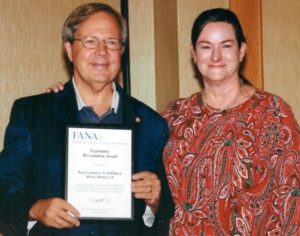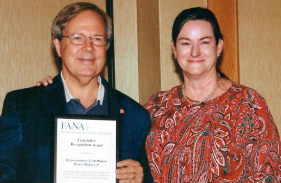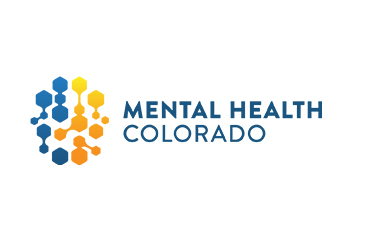By Kali Fields, Director, Grassroots Advocacy
How many patients have a history of substance abuse, but are still prescribed opioids? How many patients do health care providers unknowingly put at risk with their choice of pain management?
Jeanne Antolchick, Ph.D., APRN, CRNA has been asking these questions for years. She not only serves as the Secretary-Treasurer of the Florida Association of Nurse Anesthetists but is also a Professor of Anesthesiology with Barry University’s Anesthesiology Program in Tampa, FL and has proudly served in the United States Army. As a Certified Registered Nurse Anesthetist (CRNA), Dr. Antolchick provides direct care for patients in clinical settings where anesthesia is delivered. She also provides multimodal post-surgical pain management to curb the need for opioids.
 Recently, the Florida Association of Nurse Anesthetists (FANA) worked alongside the Florida State Legislature to pass the Non-Opioid Alternatives Law aimed to help health care providers and patients with pain management. The law requires that, before administering anesthesia using a Schedule II controlled substance or prescribing or ordering a Schedule II controlled substance for pain treatment, a health care provider must talk to the patient about the risks of controlled substance abuse, and the advantages and disadvantages of non-opioid options. During the discussion, the health care provider must give the patient or their representative, a printed Alternatives to Opioids pamphlet. This is a huge win for the state and for providers working tirelessly to promote increased access to non-opioid therapies and services to treat pain. Facilitating a conversation about this important issue brings us one step closer to stopping addiction before it starts.
Recently, the Florida Association of Nurse Anesthetists (FANA) worked alongside the Florida State Legislature to pass the Non-Opioid Alternatives Law aimed to help health care providers and patients with pain management. The law requires that, before administering anesthesia using a Schedule II controlled substance or prescribing or ordering a Schedule II controlled substance for pain treatment, a health care provider must talk to the patient about the risks of controlled substance abuse, and the advantages and disadvantages of non-opioid options. During the discussion, the health care provider must give the patient or their representative, a printed Alternatives to Opioids pamphlet. This is a huge win for the state and for providers working tirelessly to promote increased access to non-opioid therapies and services to treat pain. Facilitating a conversation about this important issue brings us one step closer to stopping addiction before it starts.
Dr. Antolchick shared that she, like many health care providers, was educated to believe that opioids were the best way to prevent and manage pain. However, after an anesthesiologist (Dr. David Samuels) introduced her to the benefits of non-opioid medications for pain management, there was no turning back. She urges other clinicians to question what they were taught about opioids and reminds everyone that they should ask their health care provider about the medications they will use for anesthetic and post-operative pain management.
She shared this story:
“[Mike], a 25-year-old male, and former high school quarterback, has a history of multiple shoulder surgeries. His initial surgery during his junior year was unremarkable. He was given a prescription for 60 Percocet 5/325 pills and used only 15 of the pills for pain. He kept the 45 extra pills in his medicine cabinet “just in case” he needed them later. After a second surgery to irrigate and debride a postoperative wound infection, he became addicted to Percocet pills. He began getting opioid pills from his friends’ medicine cabinets. After failing 3 courses his senior year, his parents intervened, and he underwent a 30-day inpatient rehab program. He was opioid free for 3 years when he reinjured his shoulder in an accident. He underwent a successful surgery and received a prescription for 90 Percocet 7.5/325 pills. His mother begged him not to fill the prescription, but he told her, “Don’t worry about it, Mom. I know…I got it.” After surgery, he relapsed. He found it difficult to get pills from friends and turned to the cheaper, easier-to-obtain, heroin. He refused to go into treatment and ended up living on the streets. After hitting rock bottom, he finally agreed to undergo medication-assisted treatment with suboxone (buprenorphine/naloxone).
Now, Mike is scheduled to receive a cochlear implant for his opioid-induced hearing loss. He is concerned about anesthesia because his buddy was taken off his suboxone for 2 weeks prior to surgery and had a relapse during that period. (A story inspired by: CJ Arlotta, Fighting for a fix: Reflections of mothers who lost children to the opioid epidemic.)”
Mike needs a non-opioid pain management plan to ensure that he does not relapse. However, until the NOPAIN Act is passed, non-opioid options are not always available. The NOPAIN Act would allow for the separate and complete reimbursement of safe, effective, non-opioid pain management therapies in the Medicare program. Currently, these options are not separately reimbursed and, therefore, potentially cost the patient and provider more than an opioid based pain management approach. The NOPAIN Act will remove this financial barrier and allow providers to utilize non-opioid medications when appropriate for each patient.
Dr. Antolchick works tirelessly to use non-opioids when appropriate, advocate for beneficials policies through FANA, and educate future clinicians on the impacts of non-opioids in hopes of breaking the cycle of default opioid prescribing. The NOPAIN Act is one step in the right direction to providing Dr. Antolchick, her students, and CRNAs across the country with the tools they need.
FANA is a chapter of the American Association of Nurse Anesthetists (AANA). The AANA is a professional association representing nearly 54,000 Certified Registered Nurse Anesthetists (CRNAs) and student registered nurse anesthetists nationwide. The AANA promulgates education and practice standards and guidelines and affords consultation to both private and governmental entities regarding nurse anesthetists and their practice. To learn more about AANA and their Florida chapter, FANA, please check out their website here: https://www.fana.org/



